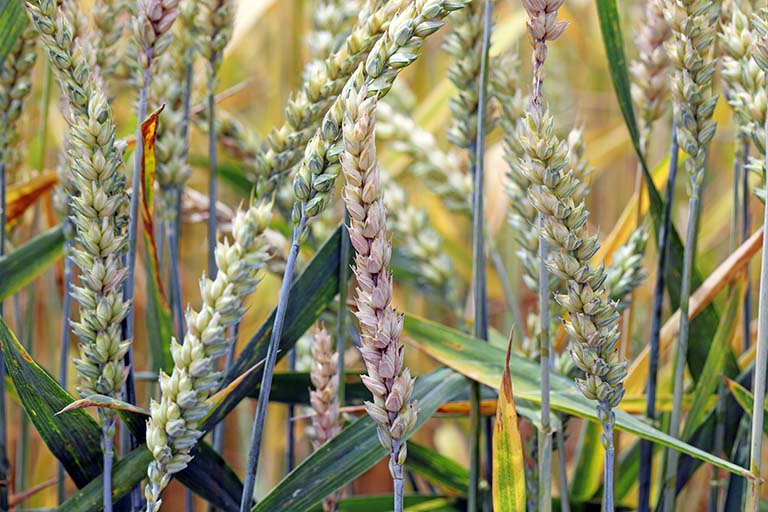To develop FHB-resistant wheat and barley, the Innes lab will collaborate with two other laboratories—one led by Matthew Helm, a USDA-ARS crop production and pest control research molecular biologist located at Purdue University and an Indiana University graduate (Ph.D. in Genome, Cell, and Developmental Biology; 2019), and the other based in the United Kingdom and led by Kim Hammond-Kosack, a molecular plant biologist at Rothamsted Research.
Innes and colleagues will take advantage of an endogenous surveillance system in plants that activates immune responses upon cleavage of specific signaling proteins by proteases secreted by pathogens. Using cutting-edge genome editing techniques, Innes’ team will create decoy substrates for these pathogen proteases, which, upon cleavage, will activate the plant immune system, thus conferring resistance to infection.
They ultimately hope to develop genetic methods for the detection of pathogen proteases, both in inside and outside plant cells, with a focus on wheat. If their proposed combination of intracellular and extracellular protease detection systems succeeds, it could potentially be deployed against many other cereal pathogens such as rust fungi and nematodes. Collectively, this genetic-based approach could dramatically reduce our dependence on environmentally damaging pesticides while increasing crop yields and reducing costs for farmers.


 The College of Arts
The College of Arts